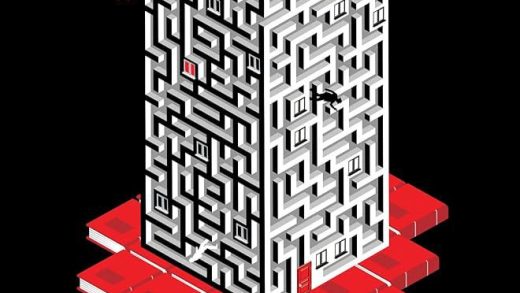Blockchain technology is being discussed like never before. Not only has it brought about an era of cryptocurrencies, but it is also likely to bring about a revolution in various other industries like healthcare, education, e-commerce, and media. The most interesting combination is that of the AI and the blockchain.
What is blockchain?
The blockchain is a public ledger of all the transactions that are digitized and decentralized. The completed transactions are stored in blocks in chronological order.
Each participating computer connected to the network is called a node. The copy of the blockchain automatically downloaded on each node. So, all the nodes will have access to the ledger, but the contents will be encrypted.
Let us explain it here:
- When someone requests a transaction, it is broadcast to a peer-to-peer network consisting of nodes.
- The network of nodes needs to validate the transaction using algorithms.
- This transaction combines with other transactions to create a block of data.
- The new block is added to the existing block in such a way that it is connected to the previous block. This makes the existing block of data for ledger unalterable.
- This completes the transaction.
What is artificial intelligence?
We all know that machines and computers are absolutely lifeless until humans induce it with software and programs to make them work as per their instruction. Artificial Intelligence is the science or technique where the machines are made to act like humans and take independent decisions in certain situations.
This simulation of intelligence in machines is made possible by a combination of different processes.
The voluminous amount of data is collected and analyzed to see the best possible outcomes for a certain task. The algorithm is then developed based on predictions, outcomes, and identifications.
AI has a varied scope and finds applications in almost all spheres of life from driverless cars to speech recognition.
How do AI and blockchain complement each other?
Both AI and blockchain are conceptually different. AI is centralized and its outcome is based on probability. The intermittent block-box (complex algorithm process) which sits between the input and the output is usually not revealed.
But, the data in a blockchain is decentralized and transparent. Data in a blockchain is secure and cannot be altered due to the cryptography involved. All of the data in the blockchain ledger is time stamped. The data is distributed among the participants or the nodes.
AI and blockchain can mutually help each other in getting better outcomes.
Here, we look into how blockchain technology can help AI.
Blockchain for data trail
AI increasingly uses neural networks to identify trends and patterns. Hence, it is becoming increasingly difficult for humans to keep track of the micro-decisions taken by the AI powering the outputs.
A black-box in AI is simply the complex set of calculations and algorithms that decides the output for a given input. There are concerns over the misuse of the black-box algorithms for hidden biases which may affect the future course of action. This lack of accountability can be solved by the blockchain technology.
Take for instance the Google algorithm for ranking websites on the SERP. Its workings are kept secret.
When an AI black-box is unaccountable, it suffers from a trust problem.
Having a clear audit trail of the algorithm using blockchain will help in improving the credibility of the big companies and increase the trustworthiness of the data. This will also help the companies track back the route and trace the machine decision process.
Blockchain for increasing data effectiveness through security
AI depends on correct data to perfect its algorithm and the final outcome.
Blockchain helps keep data secure without any tampering. The data in the blockchain is encrypted in such a way that it cannot be altered or changed. This secure data means better AI models and better results.
With clearly organized data, blockchain enables new marketplaces for transparent data trade. Thus, it can help in providing a wider data access and a better data monetization model.
Blockchain for wider data accessibility
Artificial Intelligence is dependent on data. But now, only a few big companies like Google, Microsoft, or Facebook can access their data. This data is not available to the outside world.
But in the blockchain, it is a peer-to-peer connection. The data is available on every network, thus making the availability wider and easier.
SEE ALSO: An interdisciplinary approach to artificial intelligence testing
Blockchain for better data management
AI, for the time being, runs on the concept of a centralized database. Thus, in case of an accident, there are chances that the data gets lost, altered, or corrupted.
But with blockchain, the data is stored in millions of nodes. Multiple copies ensure that the data can never get lost.
Moreover, the data is time-stamped and organized in a chronological order, making recovery easier and accurate.
Blockchain for data sharing and scalability
Better outcomes for AI means that it needs massive amounts of correct data.
Blockchain can help AI store data, thus building a scalable blockchain database. Of course, it is a challenging task but worth exploring.
With blockchain, the data can be shared and sold in a secure manner. Numerous data exchanges to securely trade the data help get more data inputs to the AI machines.
Blockchain’s dependency on AI
Although very powerful, blockchain has some pitfalls. This can be overcome by effective use of AI.
- One of the solutions is mining. It requires a humongous amount of money and energy to complete. Here, AI helps optimize energy consumption and reduces the investments in mining hardware.
- The blockchain is growing very quickly. 1MB is added every 10 minutes. Take, for example, the Bitcoin blockchain which reached a size of 173 GB by the end of June 2018. AI can help prune the blockchain by deleting unnecessary data through more efficient techniques.
- Blockchain security can be further enhanced by the AI deployment.
- Blockchain requires enormous running costs to validate and share transactions. AI comes into to the picture here. It can help for better efficiency and lower energy consumption, thereby reducing associated costs.
- If the data stored on the blockchains is sold to a company, then the tracking of data usage, access grants, and other things can be worked through the use of AI.
Blockchain and AI are revolutionary concepts that have the potential to be path-breakers when combined together. Both of them enhance the capabilities of each other in such a way that they offer opportunities for better outcomes and accountability.
The post How blockchain and artificial intelligence complement each other appeared first on JAXenter.
Source : JAXenter










